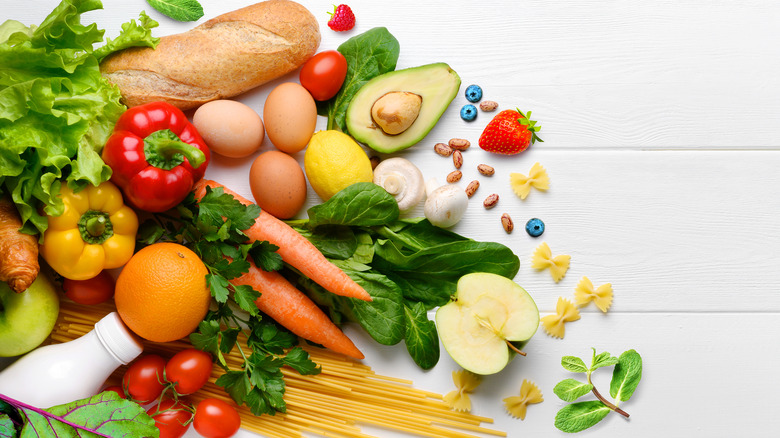The Biggest Mistake You're Making When It Comes To Organic Foods
Buying organic is trending hard these days, and according to the U.S. Department of Agriculture, the organic sector has grown monumentally over the last two decades. According to Harvard Health Publishing, organic retail sales reached over $50 billion in revenue in 2018, a record-breaker for this sector. It's not surprising that buying organic foods is doing wonders for our planet as it leans away from using harmful pesticides and bolsters biodiversity. Organic farming also tends to protect wildlife, animal raising, the soil, and farmworkers equally.
But with so many products labeled as organic, is it true that they're all healthy? For instance, when you take a stroll down your supermarket aisles and see the coveted "Organic" seal of approval on that glorious box of mac and cheese, is it as healthy as an organic granny smith apple? While the U.S. Department of Agriculture limits the number of additives and synthetic substances allowed in organic foods, they state, "some synthetic substances are listed as exceptions to the basic rule."
Skip buying organic junk food
Balu Nayak, associate professor of food processing at the University of Maine, suggests junk food is still junk food, regardless of an organic label. He told HuffPost, "Depending on the intensity and severity of the food processing, nutritional content including vitamins and minerals will be degraded in the processed food." Meaning the nutritional value diminishes when food is processed at these high temperatures, and its benefits can be lost.
Organic food can also be high in sugars and starches. Even if they don't contain high fructose corn syrup, they may still contain sugar derivatives from things like beets and brown rice. "Long-term high consumption of fructose from any source — organic or not — can lead to insulin resistance, fatty livers and many other health problems, and so can excessive sucrose consumption, whether the sugar comes from sugar cane or beets," Mary Camire, professor of food science and human nutrition at the University of Maine, told HuffPost.
To reap the best benefits of organic foods, you may want to invest in organic produce in which you eat the peel, leaves, or skin. Additionally, every year the Environmental Working Group releases a list called the "Dirty Dozen," which includes foods with the highest amount of pesticides. The best foods to buy organic include strawberries, spinach, and apples.


